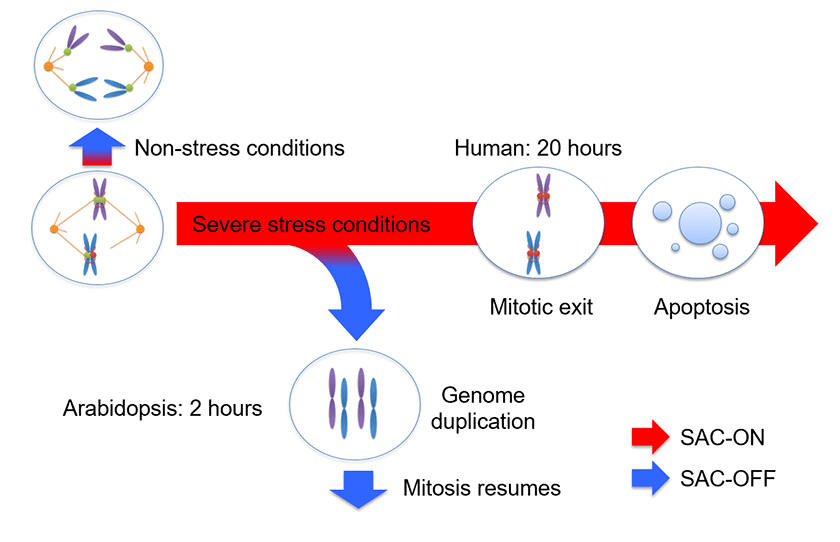2023.05.01
Molecular mechanisms governing plant genome plasticity and their evolutionary significance
Plant Secondary Metabolism・ Assistant Professor ・ Shinichiro Komaki
Although the accurate transmission of the genome to the next generations is the most important task for living organisms, changes in chromosome number and polyploidy are widespread in plants. In addition, because polyploidization often has positive effects on plant growth and development, artificial chromosome doubling is a common technique in plant breeding. Such plastic genome organization is a characteristic of plants, but the molecular mechanism that generates this variation has not been understood.
Chromosome segregation is assured by the M-phase checkpoint, which involves two regulatory units, the spindle assembly checkpoint (SAC) and the chromosomal passenger complex (CPC). The SAC has been well studied in yeast and mammalian cell culture systems due to the implication in cancer. Under stress conditions, the SAC prevents the anaphase onset until all kinetochores are properly attached to spindle microtubules. Recently, we revealed that the SAC is also conserved in the model plant Arabidopsis although it acts under severe stress conditions differently. In animals, cells maintain an active SAC during severe stress conditions for long period. In contrast, Arabidopsis cells shut off the SAC after one to two hours and rebuilt a single nuclear envelope without cell division. The resulting cells contain a duplicated genome since chromosomes were replicated during S phase. This observation implies that the specific SAC regulation facilitates polyploidization events in plants. Here, we would like to also discuss the impact of plastic genome organization on the diversity of plant secondary metabolites.

Figure 1. The spindle assembly checkpoint shut off induces genome duplication.
In contrast to animal cells, Arabidopsis cells shut off the SAC within 1-2 h even under microtubule-destabilizing conditions. The SAC shut off induces genome duplication in mitotic cells, implying that the specific SAC regulation facilitates polyploidization events in plants.
Shinichiro Komaki NAIST Edge BIO, e0012. (2023).
